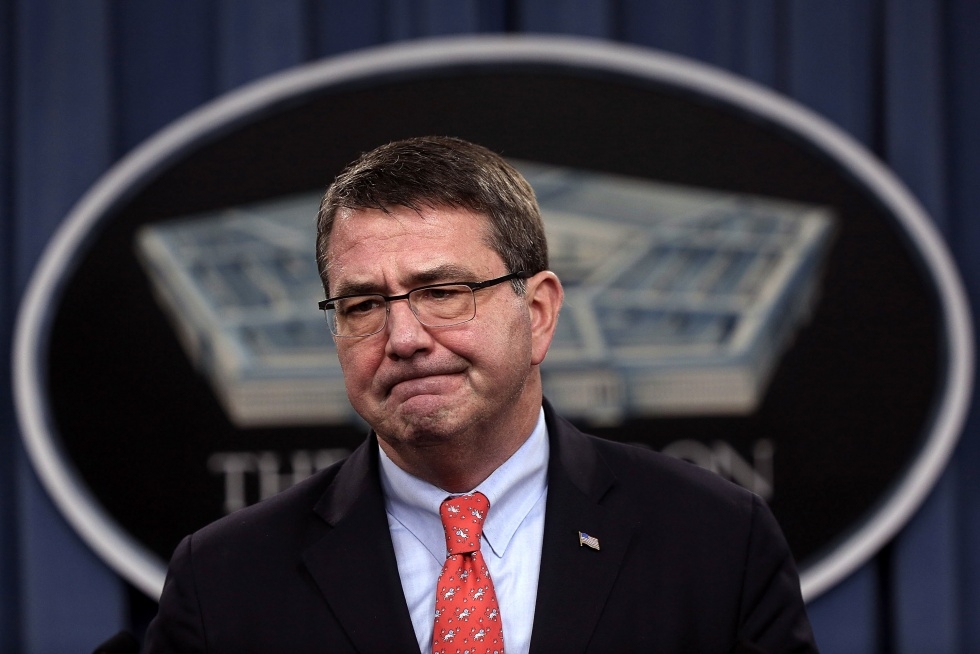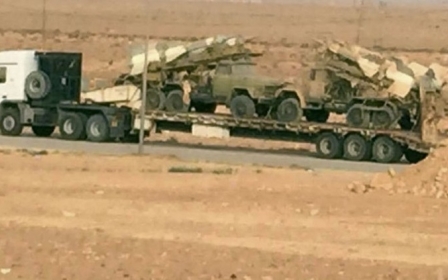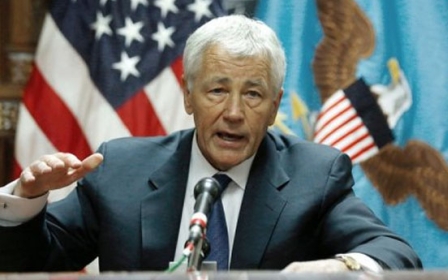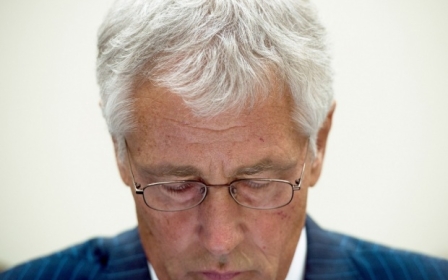Obama nominates Ashton Carter as new US defence secretary

US President Barack Obama confirmed on Friday his nomination of Democrat Ashton Carter as the country's new defence secretary.
If the US Senate confirms his nomination, Carter, 60, would succeed Chuck Hagel, who resigned under heavy pressure from the White House last week.
He would be the fourth defence secretary during Obama’s six years in office.
Carter was born in Pennsylvania, and studied medieval history at Yale university. He obtained his doctorate in theoretical physics at Oxford, before becoming a long term member of faculty at Harvard. He lectured regularly at Stanford, but his passion for defence policy and hi-tech weapons pushed him into the Pentagon, where he has accumulated a vast knowledge of its management.
Under Defence Secretary William J. Perry’s guidance in Bill Clinton's administration, Carter played a key role in the nuclear crisis with North Korea. He went on to assert himself in various positions at the Pentagon, such as the Undersecretary of Defence for Acquisition, Technology and Logistics from 2009-2011. He successfully advocated for the shipment of mine-resistant vehicles and assorted weaponry for US troops serving in Iraq and Afghanistan, in order to protect them from roadside bombs.
Although he has never served in a war, Carter is popular with service members and has frequently gone on trips to US military bases overseas, and spent most weekends with his wife at the Walter Reed Army Medical Center.
He was the chief weapons buyer under Obama’s first defence secretary, Robert Gates. Subsequently, he became the deputy defence secretary and occupied the number two position in 2011 under Leon Panetta, and then Chuck Hagel, where he was responsible for managing an annual budget of $6 bn and overseeing two million civilian and military employees.
Pentagon-White House schism
Carter will begin his new position at a time when a fraught relationship exists between the Pentagon and the White House. The tension between military-civilian relations is attributed to the White House’s heavily-centralised administration, which the Pentagon has accused of freezing them out of key decision-making policies.
For example, many officials within the Pentagon - including Carter himself - were astounded when Obama backtracked on his decision to implement air strikes on the government of Bashar al-Assad in Syria after a lengthy discussion with Chief of Staff Denis McDonough.
Obama had previously cited the use of chemical weapons by Assad as a red line, while mounting evidence indicated Assad had used chemical weapons on civilians.
"The president’s own credibility on national security - and his relationship with the military - is on the line as never before," wrote Politico's White House editor, Dan Berman.
Speculation remains on how effective Carter will be in entering the national security circle of Obama’s administration, which is filled with the president’s close, long-time aides. Known for his assertive and goal-oriented personality, according to the New York Times, Carter’s views will be put to the test on how well they correspond to Obama’s. Carter had previously disagreed with Obama’s policy of withdrawing US troops from Iraq in 2011, favouring keeping a residual force there.
Carter will be expected to play a more decisive role than his predecessor, Hagel, who was accused by White House officials of being too passive in the face of growing threats overseas.
Carter will be responsible for handling several crises, such as continuing conflict in Afghanistan and Ukraine, as well as managing US nuclear negotiations with Iran.
The selection has received support from Republican senators such as Arizona’s John McCain and Missouri’s Roy Blunt, who are impressed with Carter’s career in the Pentagon and his expertise in US defence policy. Republicans will take control of the Senate in January.
“I don’t often praise the president’s choices, but he has my loud applause,” Fox News analyst K.T. McFarland said about Carter's appointment. “He is one of the few people in the country who has all the skills needed to be a very successful defense secretary.”
Building alliances, avoiding clashes with the president
Shashank Joshi, from the Royal United Services Institute for Defence and Security Studies, believed that the White House decided to play it safe by nominating Carter.
“It’s clear that in the last two years of the presidential term, the White House was not looking for a highly independent and transformative defence secretary,” he said. “They [wanted] someone who was effectively a safe pair of hands, experienced, and who would not bring a huge clash with Congress.”
The US has outlined that its priority in the Middle East is to combat Islamic State forces in Syria and Iraq, a region where Carter does not have much experience.
Yet Joshi said this would not be a significant impediment since the US strategy on this issue is controlled by the White House.
“Carter has great experience in working with the military. He needs to have experience in building alliances, and he’s done plenty of that throughout his career. The trick is to stick close to the White House and to the president,” Joshi stressed. “If he has widely divergent views then I think he’s going to run into precisely the same problems that Hagel did. He merely has to avoid a confrontation with the White House.”
For his part, Carter attributed his acceptance of the president’s nomination to his high regard for Obama’s leadership, and what he described as a deep respect and abiding love for “men and women in uniform”.
“To the greatest fighting force the world has known, I pledge myself to you,” Carter said.
New MEE newsletter: Jerusalem Dispatch
Sign up to get the latest insights and analysis on Israel-Palestine, alongside Turkey Unpacked and other MEE newsletters
Middle East Eye delivers independent and unrivalled coverage and analysis of the Middle East, North Africa and beyond. To learn more about republishing this content and the associated fees, please fill out this form. More about MEE can be found here.




